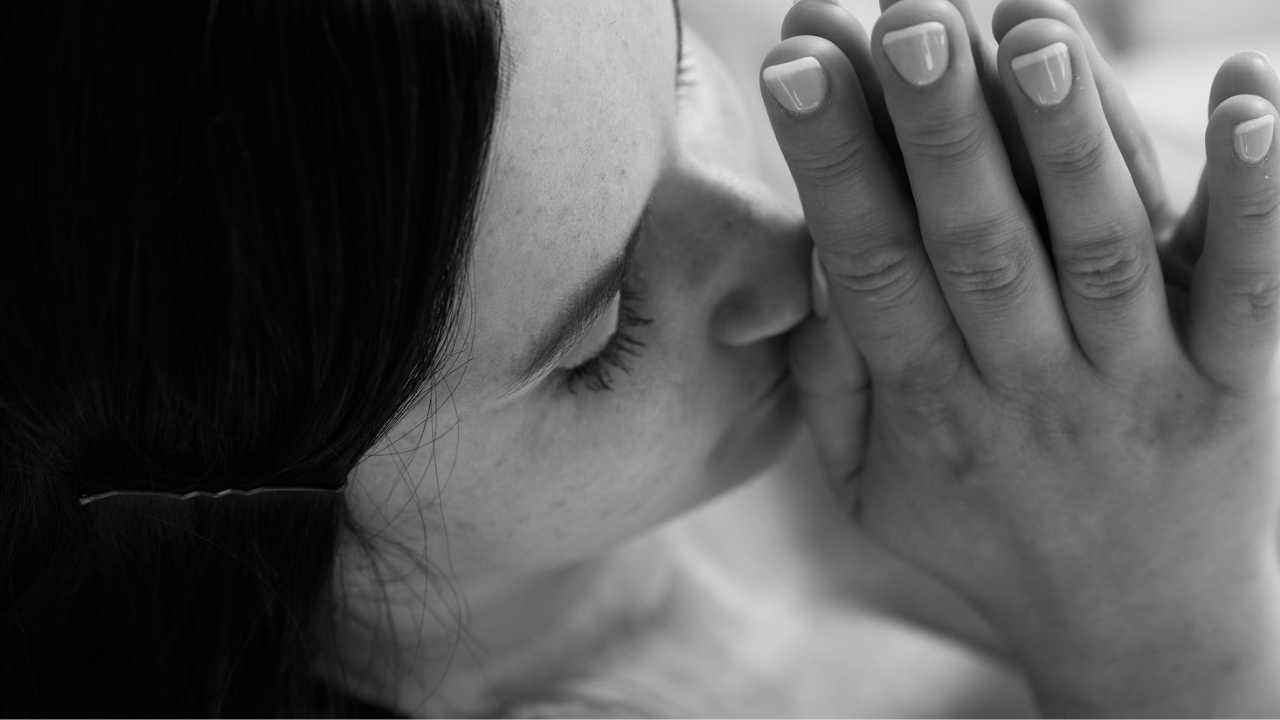How Yoga Supports The Nervous System During Trauma Recovery

Hi there,
As a woman who has survived two house fires, assault, miscarriage, and grief, I know firsthand that trauma recovery is a long process of healing emotionally, psychologically, and physically.
I had no idea yoga could be part of that journey when I first stepped onto a yoga mat.
My first practice was intense, burned calories, detoxed the body, and promised flexibility. But the more I showed up, the more it began to stop feeling like a workout. And changed how I faced challenges and cared for myself.
One of the reasons why is that yoga was affecting my nervous system during trauma recovery.
I want to share with you how.
What is the role of the nervous system in trauma?
Your nervous system is always on the lookout to protect you. When something bad happens, it automatically switches into survival mode, triggering fight, flight, or freeze to keep you on guard.
In a well-balanced nervous system, once the danger passes, it gradually relaxes, letting your body and mind return to a sense of calm.
However, once your system has been through extreme danger, it can stay on high alert, as if the threat is still present.
Moreover, trauma can change your brain. The amygdala (your fear center) can become overactive. While the prefrontal cortex, which helps you make decisions and regulate emotions. May struggle to calm things down. Your Hippocampus, which is like your computer’s external hard drive gets damaged. Causing flashbacks, persistent memories and intrusive thoughts.
As a result, you find yourself constantly on edge, easily startled. Feeling disconnected from your body, or struggling with sleep, nightmares, or anxiety.
How does yoga support the nervous system?
Let me start with one of the most amazing, but often overlooked, benefits of yoga: It rewires your brain.
Regular practice helps your brain form new connections and strengthens areas that support focus. Awareness, and emotional regulation. It also increases GABA, a natural brain chemical that helps calm anxiety and lift your mood.
On top of that, yoga’s slow, steady breathing naturally activates the parasympathetic nervous system. Your body’s “rest and digest” mode. This lowers the stress hormone cortisol. And helps you feel calmer. Gentle poses and mindful movement release tension and help you reconnect with your body in a grounding way. Especially important if trauma has left you feeling disconnected from yourself.
Do I need a trauma-informed yoga teacher to reset my nervous system in trauma recovery?
If you’re using yoga for trauma recovery, a trauma-informed teacher can make a big difference. Trauma changes the way your nervous system responds to stress. So even gentle yoga can feel overwhelming if the class isn’t designed with that in mind.
- Trauma-informed yoga teachers are more:
- Attuned on body language. Therefore more likely to notice if you’re triggered.
Comfortable handling a mental health crisis. - Familiar with which practices are contraindicated. Plus, which are likely to be more beneficial.
- Aware that crying and shaking are normal. They are a sign of the body releasing issues in the tissues. As trauma is held in the body physically.
That’s why a trauma-informed yoga teacher creates a supportive space and helps you feel in control. For example, instead of giving strict commands, they offer choices. So you can move at your own pace. They avoid unnecessary physical adjustments that might trigger discomfort or anxiety. They focus on creating an environment that encourages your nervous system to relax.
That said, you don’t have to practice exclusively with a trauma-informed teacher to get started. What I encourage you to pay attention to is, how yoga makes you feel during and after your practice.
There is no guarantee that yoga won't trigger a student. But teachers can enhance the way they teach to reduce the likelihood of that. Plus learn how to ground their students if that happens.
For those looking for extra guidance, I created Yoga For Trauma: The Inner Fire of Yoga. A podcast where I share insights to help people with trauma history. Or mental health struggles use yoga to live better lives.
My hope is that these tools give you confidence on and off the mat. So your nervous system can learn to switch off. Letting your body and mind recover from the effects of trauma.
If you’d like to start feeling calmer and more connected today, you can try my 3R Yoga Plan: Release, Relax, Restore. You’ll have 14 days to explore practices designed to help your body and nervous system gently unwind and restore balance.
Or perhaps contact me about working one on one with my Yoga Designed For You Program.
Cheers
Liz
